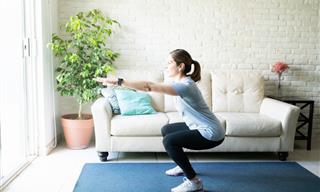Researchers from the University of Illinois published a study in the Journal of the Academy of Nutrition and Dietetics’s September 2015 issue, detailing the results of their research, which took place between 2003 and 2012, and included upwards of 22,000 participants, divided according to their favorite beverage.
The five drink-groups were: coffee, alcoholic beverages, tea, “diet” sodas, and regular sodas. The point of this research was to examine the correlation between the consumption of each type of drink, and the quality and quantity of food the participants ate. The results showed a significant rise in caloric intake in two of the five groups.
Tea drinkers were found to have the lowest rise in caloric intake, with an average daily rise of 64 calories. Tea is considered to be a healthy drink, whether it’s black tea or various infusions, so it is not surprising that it’s the best performing beverage on this list.
In this group, researchers found a rise of 69 calories on average. Researchers also found another interesting thing in this group – of all the examined beverage groups, diet soda drinkers experienced a significant rise in calories from food that was consumed as a result of distraction or bad judgment.
Some 50 of the 69 calories are associated with this kind of eating. The reason for this is the body’s dissatisfaction with the amount of calories it gets from these beverages, which causes the body to crave more food. Another reason is that some people will give themselves a “treat” after drinking an allegedly “healthy” drink.
Like the “diet” drinkers, coffee drinkers also experienced a rise of 60 calories originating in junk food and unplanned eating, but the total rise in the caloric intake sums at 109 calories. Coffee, like tea, has many health benefits, but it also has several downsides if consumed in excess. In addition, coffee drinkers and soda drinkers were found to have the unhealthiest diet of all five groups.
It is not a surprise to see this group near the top of this list, as participants in this group consumed a lot of calories, both from the sodas and from their unhealthy diets, raising their daily average by 226 calories. Since almost half of the participants in this study belonged to this group, it is easy to see why obesity has become a plague in the Western world. It’s important to note that the majority of the calories in this group were from heavily processed foods.
At the top of the list are the alcoholic beverages that have the highest impact on weight gain and caloric intake, with 384 more calories on average in their daily intake. This can be attributed to the “Apéritif Effect”, which has been known to experts for many years. It has been shown that consumption of alcohol causes people to eat more. The reason for this is currently not clear, but experts attribute it to the lowering of inhibitions brought on by intoxication, which causes people to be more susceptible to tempting foods.
Remember that in moderation, some types of alcohol have very positive effects on the body, but if you’re trying to watch your weight, avoid alcoholic beverages and pay close attention to what you eat if you do drink them.
Conclusion
The results of such a long and extensive research are noteworthy, and it is important to remember that the study did not test what type of beverage you should or shouldn’t drink, only the effects they have on our caloric intake. Now that you have this information, it will be easier for you to make the right decisions for yourself, and choose to eat and drink what is right for your diet. It’s not always easy, but it’s definitely doable.
 Go to BabaMail
Go to BabaMail


 Image courtesy of
Image courtesy of 



























